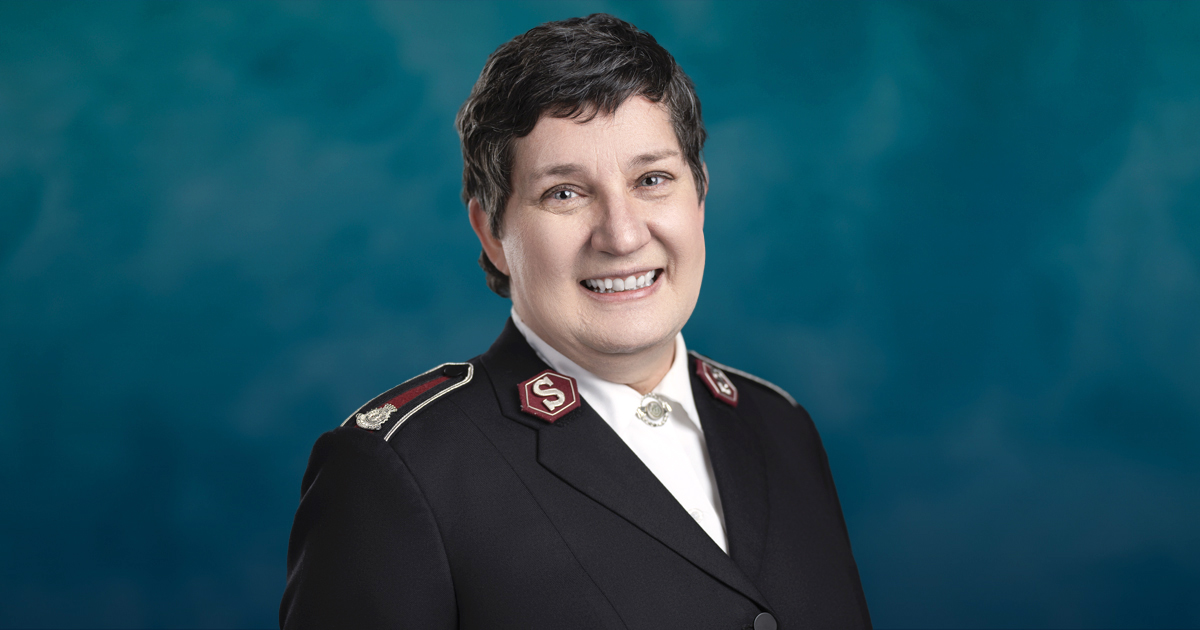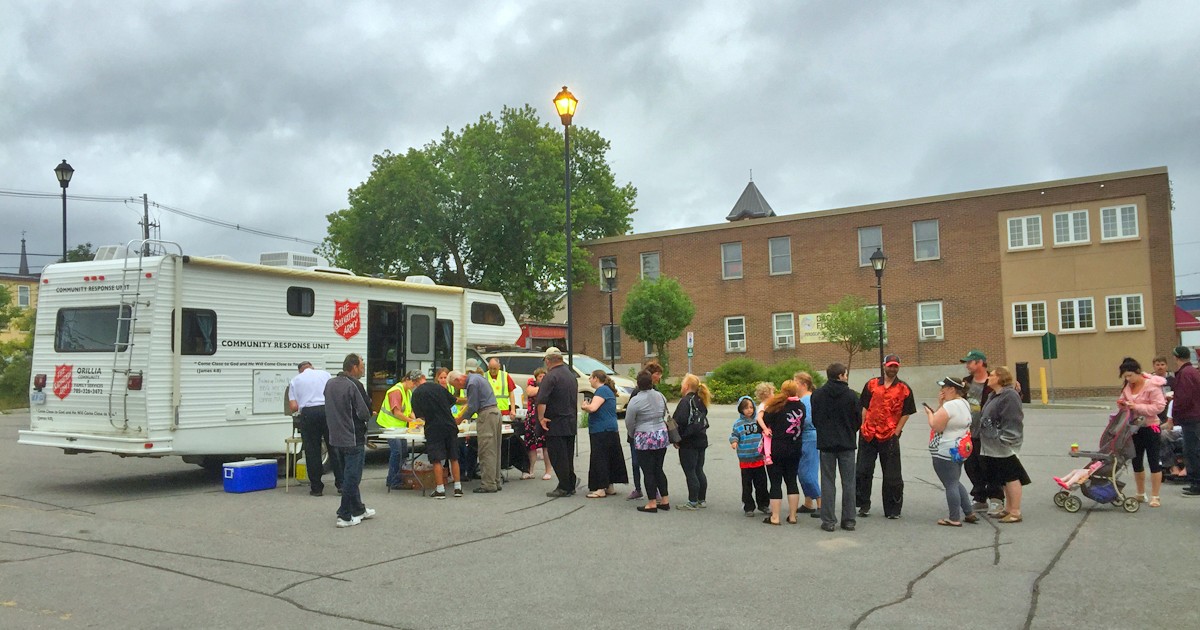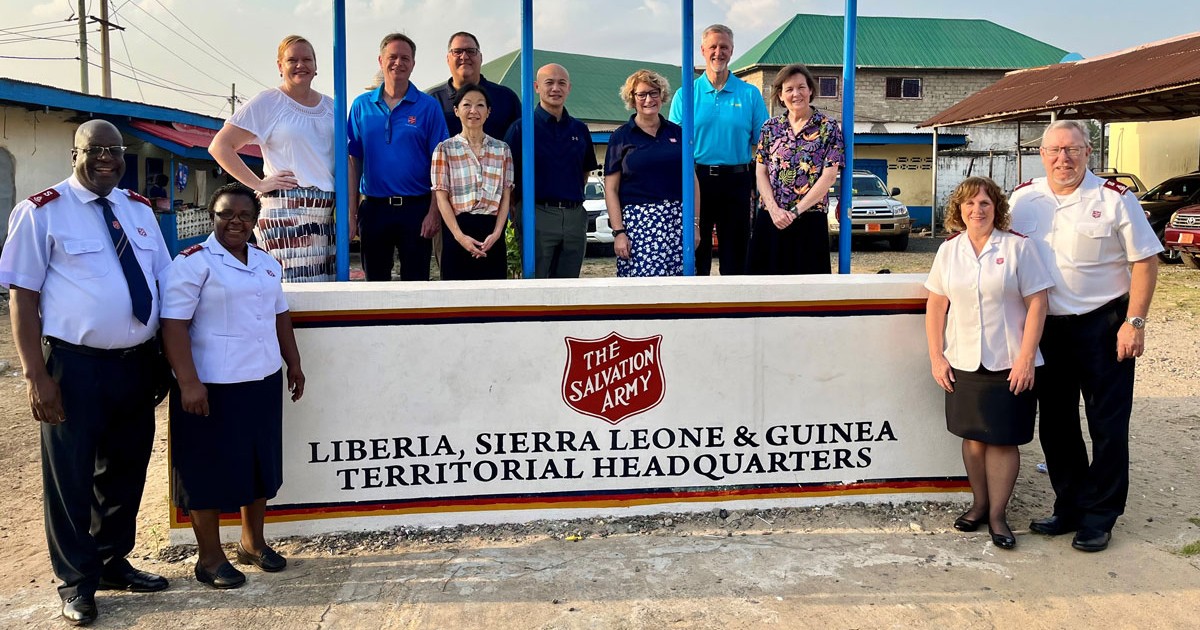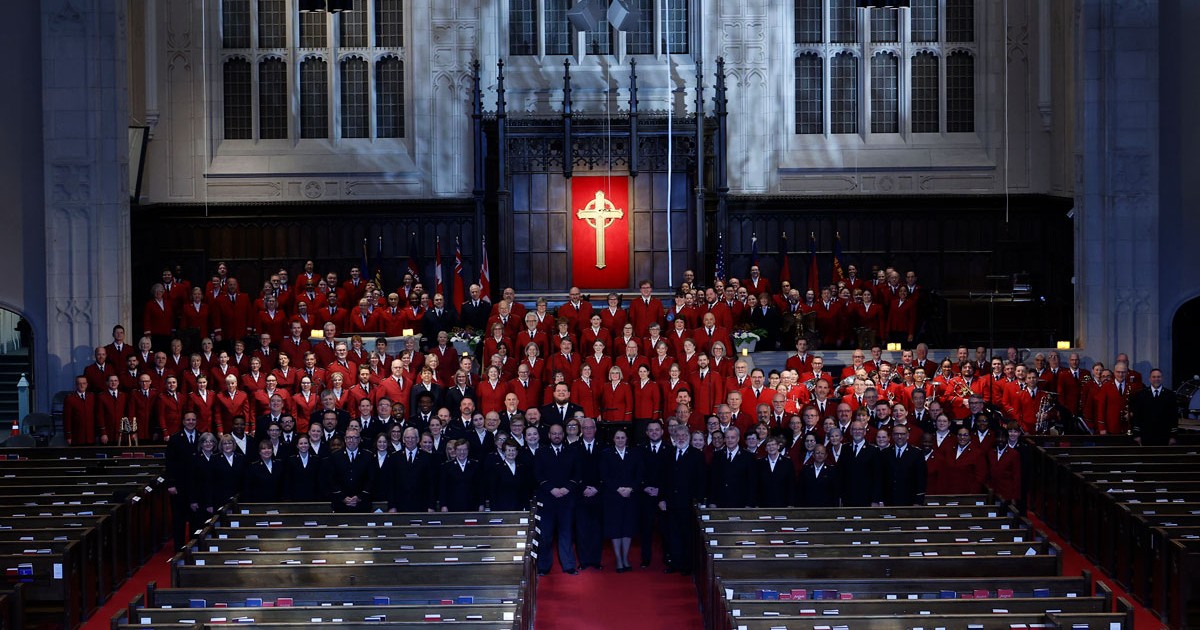As of August 1, Colonel Evie Diaz, who has been serving as chief secretary in the Canada and Bermuda Territory, will take up an appointment as territorial commander, U.S.A. Central Territory, with the rank of commissioner. She will succeed Commissioner Bradford Bailey, who, along with Commissioner Heidi Bailey, will be retiring from active service. Salvationist spoke with Colonel Diaz about leading during a global pandemic, what she will miss most and her hopes for what comes next after Mobilize 2.0.
You stepped into the role of chief secretary for The Salvation Army in Canada and Bermuda in the middle of the COVID-19 pandemic, one of the most profound global challenges in decades. What was your goal as a leader during this time?
When I arrived, there was already a working group in place to respond to the pandemic and Mobilize 2.0 was underway, so the first few months were about listening and asking questions, rather than providing direction. But it was quite a challenge trying to figure out how best to get to know the territory when I couldn’t travel. Reading briefs doesn’t really give you the best picture, so it was a lot of onscreen meetings, a lot of conversations, hearing from divisional leaders, portfolio leaders, the training college. Commissioners Floyd and Tracey Tidd and I knew each other and had worked together before, so that was helpful. My goal was to help ensure we were taking the right direction, not to steer us in any new way.
Over the past two years, the Canada and Bermuda Territory has been on a journey of transformation through Mobilize 2.0. What is the key to successfully leading change?
Communication, communication, communication. Everybody knows that, but it has certainly been affirmed over and over again. The other part is teamwork. In this kind of massive transformation, every piece affects another and so it’s ensuring that there’s real integration in the planning and implementation; that the affected people know—as much as we know—how it might affect them, or at least that the change is happening. So that’s all communication. But it needs to be intentional, not just putting out another email or article. It needs to be organized, intentional communication with the right people at the right time.
As Mobilize 2.0 comes to an end, what are your hopes for the next season of growth in the Canada and Bermuda Territory?
What we envisioned at the start of Mobilize 2.0—for things at the front line to be more efficient, for access to support to be more clearly outlined and available—is certainly a piece of it. And moving from an emphasis on structural organization—which needed to happen— to asking, where do we want to put our energy? And we absolutely want to put our energy into the spiritual health of the territory, which is the first pillar of our strategy, as well as our community engagement and effective mission to our communities. We’re building the tools to help us do that, so the next step should be, let’s do it. And let’s see the difference it makes and how people’s lives are transformed because of it.
What are some of the highlights of your time in leadership in the Canada and Bermuda Territory?
The times when I got to be with people, at all levels. There were a few strategy days when we brought in department heads, portfolio leaders and key leaders in the Mobilize 2.0 program, and there was so much energy in working and thinking together.
And this past winter, I finally had the opportunity to get out to the divisions and spend time with people during retreats, to really get to know officers and executive directors at the front line, to hear their hearts, worship and pray together, and to see how God is working and how the leaders want God to work in their lives. The couple of months that I was doing that were absolutely a highlight for me.
What’s the most important thing you have learned in your current role that you will carry forward to your new appointment?
How important it is to listen and not be the first voice. It’s easy for the person who’s leading to also want to say something first, but when things are so complicated, so complex, and because I’m coming in without history, it has been important for me to first listen—not only to the people in the room, but to the Spirit. I have found a lot of guidance as I practise not opening my mouth! Now, some people will tell you I do anyway. But it’s the exercise of thinking, OK, God, is this the moment I should speak? Is this when it’s my voice that needs to be heard? That kind of discipline has been strengthened in my life over these two years and all that we’ve been working through.
How does it feel to be returning to your home territory?
I’m excited. It’s also humbling. When I was a young officer in the territory, I never expected to return as a territorial commander—that wasn’t something I set my mind toward. So, it’s quite humbling to be named with some who are my mentors and people I greatly respect. But I’m also excited to see how God is working and wants to work in the home I love, and where I’ve spent most of my officership trying to help and be available to God. To now have this opportunity is exciting, but also daunting.
What are you most looking forward to in your new role?
I’ve been away for seven years, so I’m excited to see what’s happened in the lives of the people I knew and the ministry I loved, to see how God has brought them along. I’m anticipating I’ll spend the first few months listening.
What will you miss most about the Canada and Bermuda Territory?
As I was getting to know the divisional leaders, one of the questions I asked was, “Knowing I love hiking, exploring nature and museums, where would you take me in your division to understand what’s unique and special about you?” And then when I was able to go and visit, they all made sure I had the chance to see those things, which was really touching for them to remember I’d asked that. I’ve been able to see some beautiful parts of this country and take some great walks. I’ll miss that.
And I will certainly miss the people, even though it’s only been two years. I’ve learned to value all the people I’ve met, but particularly those I’ve worked with closely, divisional and portfolio leaders—those relationships have become significant, and I’ll miss that interaction. I also had the great opportunity to meet a lot of corps officers and executive directors.
I’ve been described as somebody who moves in. Once I’m in a place—here I am. This is me. I live here. This is home. So, it’s always hard for me to leave because of that. I settle in where I land. I’ll miss relationships, people.
What would you say to the incoming chief secretary?
I’ve already told him this: the people in this territory are good people—you’ll enjoy getting to know them. And I would encourage him to spend some time listening, getting to know key people, and having one-on-one conversations. The Canada and Bermuda Territory is unique, as every territory is, and it’s important to just listen and understand the values, as well as the systems, which are a bit different here. But he’ll be able to travel much more quickly than I did, so I’ve suggested he travel across the territory as soon as he is able.
Do you have any parting words of encouragement for Salvationists?
Be hopeful. I know these have been rough years and there are still challenges ahead as we make significant changes to operations and move into a new operating model. But be hopeful and be assured that how God works in the territory isn’t going to change.
I believe there is so much more he wants to do. I know people’s hearts are there and want that to happen. I want to encourage people not to forget that and to continue to listen to how God’s leading. He’s got great plans for this territory. I have no doubt.










Being able to meet Colonel Diaz at Inspire where I was also able to be one of the Hosts, I was very impressed with her and in the short time I met her was proud of the work we all accomplished. I pray that she continues to lead in such a way as she did here in our Territory.